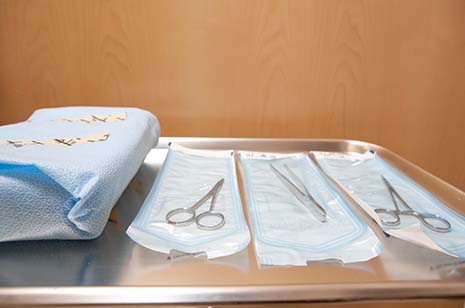
FAYETTEVILLE, Ark. – Health-care supply chain researchers at the University of Arkansas, in a study of three hospitals within the Mercy network, have found that adoption of advanced inventory management systems can significantly reduce costs associated with medical and surgical items used in operating rooms.
>The study, released by the Center for Innovation in Healthcare Logistics and funded by Covidien Inc., a health-care products manufacturer, focused on medical and surgical items used at Mercy hospitals in Fort Smith, Ark., Springfield, Mo., and Oklahoma City. Their analysis showed that holding costs associated with a high stock inventory contributed most to inefficiencies.
In 2010, health-care expenditures in the United States reached $2.6 trillion, nearly 10 times the $256 billion spent in 1980. Hospital care and clinical services account for roughly half of the nation’s health expenditures. According to another research study, supply chain costs may account for as much as 40 percent of the cost of providing care, and it is estimated that if demand and inventory were better managed, cost savings could range from 6 percent to 13.5 percent of total health-care costs.
The Arkansas researchers analyzed inventory and procurement practices at each hospital and evaluated the potential for cost savings. They applied an advanced inventory management system driven by actual usage data and found that it forecasts demand better than traditional methods of ordering and replenishing.
“Because of intermittent or so-called ‘lumpy’ demand, procurement and supply-chain managers struggle with how many items to order,” said Manuel Rossetti, professor of industrial engineering and lead author of the study. “Traditional methods of modeling and forecasting are not sufficient. Our implementation of an advanced forecasting technique showed much greater efficiency with a majority of the items at each location. Of course, the implication is that vital items are fewer in nature – not as many held in stockrooms, for example – and adoption of inventory best practices on these items may generate considerable savings.”
The researchers studied supply-chain processes on a total of 370 items – 119 at Fort Smith, 103 at Oklahoma City and 148 Springfield – made by Covidien. They focused on items within Covidien’s medical/surgical category, which includes diagnostic equipment and monitors, instruments such as clamps, scalpels, needles and suction tubing; and other general products such as latex gloves, towels, trays and sponges. Usage data on these items were extracted from software over a 578-day period, from October 1, 2010, to April 30, 2012.
The research team found that savings and cost reductions can be achieved by implementing advanced inventory management systems that would result in less inventory on hand while still fulfilling demand for items. Overall, the researchers analysis showed that forecasting was better for 61 percent of all items at the Fort Smith hospital, 65 percent of all items at the Oklahoma City hospital and 71 percent of all items at the Springfield hospital.
The Center for Innovation in Healthcare Logistics at the University of Arkansas partners with industry to lead a nationwide effort to identify and foster system-wide adoption of innovations in health-care supply chain and logistics. The center facilitates collaboration among U of A researchers, health-care providers and industrial sponsors. Additional information about the center can be found at cihl.uark.edu.
Rossetti is holder of the John L. Imhoff Endowed Chair in Industrial Engineering in the College of Engineering.
Topics
Contacts
Manual Rossetti, professor, industrial engineering
College of Engineering
479-575-6756,
Edward Pohl, professor, industrial engineering
College of Engineering
479-575-3667,
Matt McGowan, science and research communications officer
University Relations
479-575-4246,